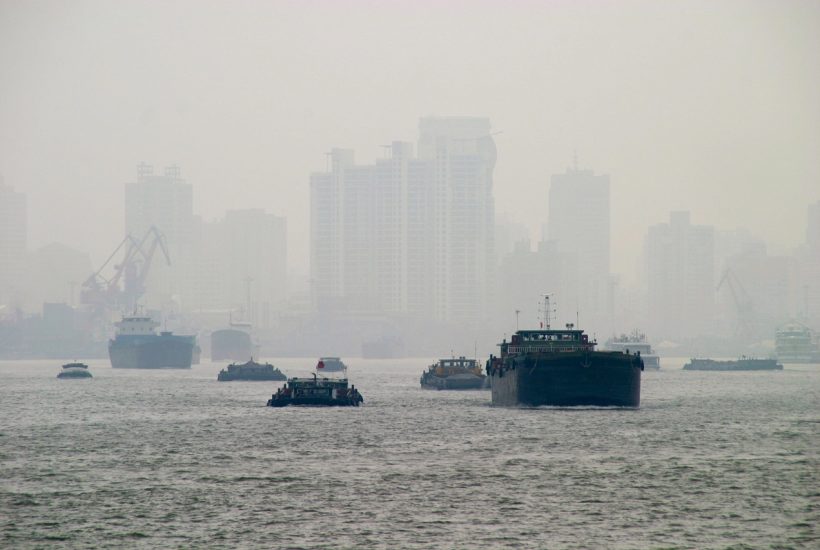Featured
The Energy Crisis Could Help Europe, China, and India Reduce Emissions
The study, presented during the work of Cop27 in Egypt, reveals that China will have installed 165 gigawatts of new renewable power by the end of this year, 25 percent more than last year. In addition, sales of electric cars in the Asian nation will double from 2021 to 6 million new vehicles. An encouraging sign, counting that China alone generates between a third and a quarter of global emissions.

Economic opportunities arising from the green transition and the rush to move away from Russian gas to increase energy security and reduce costs may help three of the world’s four largest emitters of CO2 into the atmosphere-China, the European Union and India (the fourth being the United States)-in trajectory to reduce their emissions. Even beyond the estimates set in their official targets. That is explained in a new study by the Energy & Climate Intelligence Unit (Eciu) in London.
Read why the energy crisis could be a good thing and find the most important economic news from around the world with the Born2Invest mobile app.
More renewables and electric cars in China
The study, presented during the work of Cop27 in Egypt, reveals that China will have installed 165 gigawatts of new renewable power by the end of this year, 25 percent more than last year. In addition, sales of electric cars in the Asian nation will double from 2021 to 6 million new vehicles.
In total, the Chinese government has installed more than 260 Gigawatts (Global Energy Monitor data) of generation capacity from wind power, more than twice the size of the United States of America and more than a quarter of the world’s total. In 2021, it also installed 26 Gigawatts of offshore wind capacity-more than has been installed globally in the past five years.
An encouraging sign, counting that China alone generates between a third and a quarter of global emissions. And the United States, by 2022, will be second only to Beijing in installing new solar panels: estimates predict that by 2030 renewables will generate 85 percent of the country’s electricity, and electric cars will account for half of all new cars sold.
The surprise comes from India
But the surprises, reading the report, come from India: in this decade, the third-largest emitter will consistently develop the renewables sector, particularly solar, while there will be a decline in coal, not so much because of political issues but because it will no longer be economically viable. According to Eciu, the spread of electric cars will help enable India to achieve its 2070 net zero emissions target.
And while we are witnessing the European Union’s announcement that it is about to increase its 2030 emissions cut commitment from 55 percent to 57 percent, again India has tried (in vain) to have the Sharm el-Sheik final declaration include a call for a phase-down from all fossil sources. Not only from coal, then, but also from oil and gas.
The good news is there but beware of triumphalist overtones. China’s Ndc (Nationally Determined Contribution) envisions a gradual decarbonization of its economy, by at least 65 percent, by 2030 from 2005 levels. With the achievement of so-called net zero ( the zeroing of net CO2 emissions) by no later than 2060. But despite the announced efforts, according to Climate Action Tracker’s analysis, these goals do not appear to be in line with that of curbing global warming at the 1.5-degree Celsius threshold. On the contrary, at this rate global temperature rise could still reach 3-4 degrees.
The same is true for India: despite declining emissions, coal-fired power plants are still operating and the government is building new ones. The U.S. has also made progress, but it is below sufficient: under Joe Biden’s presidency, the U.S. has rejoined the Paris Agreement. And they have relaunched a more ambitious NDC than before. With a projected 50-52% reduction in emissions by 2030. A significant leap forward, but still not in fact in line with the global climate goal. To reach it, the United States must aim for a 57-63% cut in emissions in order to stay within 1.5 degrees.
What about the European Union? The old continent could be heading in the right direction, even considering the ongoing energy crisis. It was just a few days ago that the European Commission intends to declare any renewable energy project “in the public interest.” And thus streamline the permits that are slowing down the energy transition. Yet still too many member states-including Italy-are focusing on new gas extraction and production projects.
__
(Featured image by PeggyMarco via Pixabay)
DISCLAIMER: This article was written by a third party contributor and does not reflect the opinion of Born2Invest, its management, staff or its associates. Please review our disclaimer for more information.
This article may include forward-looking statements. These forward-looking statements generally are identified by the words “believe,” “project,” “estimate,” “become,” “plan,” “will,” and similar expressions. These forward-looking statements involve known and unknown risks as well as uncertainties, including those discussed in the following cautionary statements and elsewhere in this article and on this site. Although the Company may believe that its expectations are based on reasonable assumptions, the actual results that the Company may achieve may differ materially from any forward-looking statements, which reflect the opinions of the management of the Company only as of the date hereof. Additionally, please make sure to read these important disclosures.
First published in valori, a third-party contributor translated and adapted the article from the original. In case of discrepancy, the original will prevail.
Although we made reasonable efforts to provide accurate translations, some parts may be incorrect. Born2Invest assumes no responsibility for errors, omissions or ambiguities in the translations provided on this website. Any person or entity relying on translated content does so at their own risk. Born2Invest is not responsible for losses caused by such reliance on the accuracy or reliability of translated information. If you wish to report an error or inaccuracy in the translation, we encourage you to contact us.

-

 Impact Investing1 week ago
Impact Investing1 week agoEnfinity Launches First Solar Plant in Italy with Microsoft
-

 Markets6 days ago
Markets6 days agoSilver Dips Sharply, While Gold Gains Amid Mixed Stock Market
-

 Crowdfunding2 weeks ago
Crowdfunding2 weeks agoEvenFi Launches Run-Off Service to Protect Investors as Crowdfunding Platforms Exit
-

 Africa3 days ago
Africa3 days agoTunisia Holds Interest Rate as Inflation Eases, Debate Grows





















